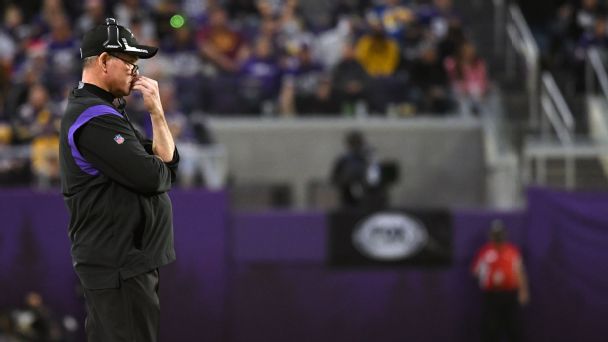MIAMI — Miami Dolphins players sprinted off the sideline to celebrate in the end zone before taking one last elated jog off the field at Hard Rock Stadium after beating the New England Patriots 33-24 Sunday. They weren’t playoff-bound, but they took immense pride in finishing the season with a 9-8 record after being 1-7 entering November.
Coach Brian Flores wasn’t asked about his job security after the game. He was asked about what it meant to him to sweep the Patriots, his former team. He was asked how it felt to finish the season 8-1. He was asked about his confidence in his ability to build for the 2022 season.
But not about his job security; he was expected to enter next season with one of the hottest seats in the NFL, but it would still be his seat.
“Right now my thoughts are on kind of enjoying this [win],” Flores said Sunday. “The offseason, those are things that we’ll start to get into in the future. But right now just trying to enjoy this moment.”

Twelve hours later, the Dolphins fired Flores with owner Stephen Ross saying the coach was not collaborating properly at an organizational level to sustain success.
“An organization can only function if it’s collaborative, and it works well together,” Ross said. “And I don’t think that we were really working well as an organization [the way] it would take to really win consistently at the NFL level.”
The firing was a surprise, in part, because Miami’s 8-1 finish tied the Kansas City Chiefs for the best in the NFL during that span. The Dolphins are also the first NFL team to start 1-7 and finish with a winning record. Flores’ three-year tenure ended with a 24-25 record and no playoff appearances, but also delivered Miami’s first consecutive winning seasons since 2003.
But it was a facade, according to Ross.
As ESPN’s Jeff Darlington reported, Ross’ decision was about relationships and Flores’ inability to sustain them. His time with the Dolphins featured constant turnover — different offensive coordinators in each year, two defensive coordinators and four offensive line coaches, one of whom was fired days into training camp.
The decision to keep Chris Grier as general manager represents Ross picking a side, and his glowing review of the roster Grier assembled serves as an indictment of Flores’ ability to extract the most out of it; that’s a mistake the Dolphins’ next coach can’t afford to make.
Priority one is fixing what was a bad offense in 2021. The only categories Miami ranked better than 21st in were passing yards per game (17th) and third down conversions (13th). This won’t be a unique problem for the team’s next head coach — Miami hasn’t fielded a top-10 offense since 1995, which is the longest drought in the NFL by 12 years.
That process begins with deciding what to do with quarterback Tua Tagovailoa, who was efficient, albeit unspectacular, in his second season.
1:29
The Get Up crew shares its surprise after learning the Dolphins’ decision to fire head coach Brian Flores.
Flores’ relationship with Tagovailoa reportedly deteriorated as the second-year quarterback weathered rumors about the team’s interest in Houston Texans quarterback Deshaun Watson, who asked for a trade in January before 22 lawsuits, with accusations of sexual assault and inappropriate behavior, were filed against him. Ross said the quarterback position “played no role at all” in his decision to fire Flores, but that doesn’t mean Tagovailoa, the fifth overall pick in 2020, won’t be a primary concern (or selling point) for Miami’s next head coach.
“As I said before, I have a lot of confidence in Tua, but it’s really going to be dependent on the next head coach … and the direction that he wants to take at that position,” Ross said.
The Dolphins allowed the second-fewest points in the league over the final nine weeks and Flores was instrumental in that production. That same defense allowed the fourth-most points per game during the first eight weeks, when Miami sputtered to a 1-7 start. Someone had to take the blame for that, as well.
The Dolphins once went 15 seasons without a losing one. They’ve finished above .500 five times since that streak ended. They’ve turned to nine coaches, interim or full-time, to end that cycle over the past two decades — in a sense, creating a cycle of its own.
This offseason, that cycle begins again.
